Patience is not the ability to wait, but the ability to keep a good attitude while waiting.
—unkown
We are currently in lockdown 4 here in Vienna and in the East of Austria, “little” Gibraltar on the other hand seems to have already fought the virus through vaccination, the USA also reports a high vaccination coverage and is gradually starting to return to the “new normal”.
In the last few days, an “indigenous saying” has been haunting my mind – it says, that the Sacred Turtle teaches us that patience and inner strenght are the foundations of the unfolding of life.
In the course of the Covid-19 pandemic each of us has experienced individually what it means to steer with/without patience and trust into an uncertain future.
The everyday tasks and circumstances were suddenly joined by an invisible permanently present danger that can only be banished together globaly with an extraordinary amount of patience and endurance.
A daily experience of one’s own competencies and feelings in dealing with ‘the crisis’, a daily observation of how crisis-resistant my environment reacts in this stressful time: starting with the family, through friends and acquaintances, in the work environment, up to those responsible in the government.
Who is resilient and who isn’t?
Meanwhile there are studies on “Covid-19-Resilience” – according to this study, optimistic people are less affected by the crisis, as would people who have a stronger sense of self-efficacy, especially those who can rely on their own abilities in difficult situations.
Why at all was this pandemic able to throw us off tracks – when concepts like VUCA* have been trying to prepare us for this time for decades. According to Jamais Cascio (Californian futurist) we are now on the threshold of a world characterized by chaos and need new ways of thinking, like the BANI** model?
Corona shows us the way to the future – helps us to find and improve our patience, perseverance and inner strength to be prepared for the tasks of the future on our planet.
👉How do you measure your capacity for resilience? What helps you to stay strong inside during this ‘new’ and unusual time?
👉How do you manage to motivate and build up other people in these uncertain times?
👉Which competencies will we need more of in the future? Can you also see the opportunity to grow spiritually, in consciousness during this transformative time?
*The VUCA concept has reliably accompanied us for many decades. It dates back to the 1980s and describes the world as V:olatile (volatile), U:ncertain (uncertain), C:omplex (complex), and A:mbiguous (ambiguous). All agile and self-organized thinking and action logics are based on this acronym.
**BANI stands for Brittle, Anxious, Non-linear and Incomprehensible and is a way to better articulate the current state of the world in order to respond to it.
👩🏻Lori Felton 🇺🇸🇦🇹
I first met Lori in 2014 in Vienna – through a contact I had at the time with the University of Applied Arts. Lori was finishing her PhD thesis on Egon Schiele and was living in Vienna at the time. In the fall of 2014, we saw each other briefly in Philadelphia. From the beginning, I grew to love Lori’s easygoing and open nature – I appreciated her passion for art, her love of Vienna and humanity, and her creativity.
Lori lives near Washington, D.C. with her husband, stepson, and two cats. She works as a counselor at American University, and usually travels extensively and enjoys fine food, wine, and culture.
🧑🏻🦱Walid Awad 🇦🇹🇵🇸
I met Walid on Instagram – he is passionate about running and posts very motivational and creative posts on his Insta channel. I admire his athletic discipline, very good taste in music, openness as well as his broad interest in world-changing topics.
👱🏻♂️Lukas Wenninger🇦🇹🇧🇪
Lukas was our ‘millennium baby’ – he was the first family member born in the new millennium and is my youngest nephew. I am very grateful that I can always exchange ideas with Lukas about different topics on various social media channels. I appreciate his precision, ambition, empathy, powers of observation, and excellent academic and university performance.
Lukas loves soccer, likes reading and hiking as well as meeting his friends in his leisure time. He has been studying business administration at the Vienna University of Economics and Business (WU) since fall 2020.
👩🏻Lori Felton 🇺🇸🇦🇹
Answer 1
I am incredibly privileged and have not been as affected by the pandemic as many others have been, and even so, I have not been consistently resilient throughout this entire time. Like most people, I’ve experienced some dark days. I had a rough childhood and I spent seven years working toward a PhD, both of which helped me to develop a strong capacity for resilience, but those experiences have also left me insecure. Life’s hardships help you to develop the ability to assess the situation and prioritize your needs and desires, especially in uncertain times. You do what you need to do to secure your family’s situation. I honestly think that was the impulse behind the toilet paper hoarding that took place last year, but I didn’t do that. Instead, I set up a home office and cleared out the basement early on, so that we had enough space to live and work in our home. My spouse and I both went through periods in the spring in which we felt we should prepare for job losses, but thankfully, those never manifested. So, our resilience has mostly been about accepting our situation, that we can’t do all of the things we enjoy such as socializing and travel and finding creative ways to maintain our mental strength through outdoor activities and Zoom socializing.
Answer 2
I’m fortunate because my job, coaching applicants for competitive scholarships and fellowships, is future-focused and hopeful in itself. So, I get to spend my days with people who are motivated already. It’s really a matter of making the most of what you have today, whatever that may look like, to try to make tomorrow better for you, others, or ideally, both.
The best way to build people up is to remember to check in with them. This is an especially important practice right now, when people have been incredibly isolated. Nothing builds me up more than hearing from someone who cares about me, even if it’s just a brief text exchange. We are all facing some sort of a challenge, whether it’s physical, social, mental or spiritual, and just knowing you aren’t alone can help. Things are getting better, but I don’t think this will be over for a long time, so it’s important to understand that different types of interaction hold different value and try to interact with your loved ones in one way or another each week. In other words, Zoom, phone calls, texting and social media all hold value if you use them properly and intentionally.
Answer 3
We can always use more empathy, meaning that we understand that others have very different experiences from us, and we believe what they tell us about their experience and try to imagine how we would feel in their shoes. I think a lot of people skip the part about believing the other person, and instead think about how we personally would feel in their shoes. That’s not quite the same thing.
I think we’ll also need to be more agile. Restaurants that could reimagine their menus and service to provide comfort for those stuck at home fared far better here in the States than those who did not. “Vollpension” did something similar in Vienna, offering online cooking classes and other ways to engage with their patrons in a meaningful manner. We’ll all need to be creative as the climate, and therefore society, changes in unexpected ways.
There are always ways to grow spiritually, one must simply find them. This year offered new levels of solitude, which is a traditional means of achieving spirituality, and we collectively experienced it. I don’t necessarily believe that we all grew spiritually from it, though. So even if the opportunity arises, one must be motivated to pursue it.
🧑🏻🦱Walid Awad 🇦🇹🇵🇸
Answer 1
I found my love for sports again in this new and unusual time and regularly engaged in outdoor activities with friends, such as running, hiking and mountain biking.
Answer 2
I try to clarify through structured discussions and conversations with the people around me that this situation is urgent and afterwards new opportunities can arise for all. I am convinced that golden times await us humans in the medical and technology sectors after the COVID-19 crisis.
Answer 3
The COVID 19 crisis taught us humans a few things, such as that digitization is an important part of our society or that local living habits can protect the environment. I think that we humans should strongly perceive and implement the above-mentioned competencies in the future.
👱🏻♂️Lukas Wenninger🇦🇹🇧🇪
Answer 1
You can’t pin this down to one thing. A central point is to admit to oneself that, especially in times of a crisis like the one we are currently experiencing, mood swings and being in a bad mood are quite normal and almost unavoidable. The question, however, is how to deal with it. With regard to this, this time definitely offers a chance to get to know yourself better, to recognize when your thoughts are becoming more and more negative and you are threatening to bury your head further and further in the sand. If the situation seems hopeless once again, this shouldn’t happen under any circumstances, of course. There is undoubtedly no universal solution that can be applied to all people. However, a first step in the right direction is to take a sober and calm look at the situation in order to think positive again. This can be achieved in many different ways. For some it is a good book, for others perhaps an exciting film or an entertaining series. Often, seemingly insignificant little things are enough to significantly improve the mood. In my specific case, it’s sports and fresh air that play a very important role.
Answer 2
In principle, it is certainly right to talk a lot about the crisis in order to find out about the concerns and fears of the people you are talking to, to understand them and, in the best case, to be able to refute them. To do this, it is necessary to seriously consider the problems of others and to try to put oneself in their shoes. Even if it often does not seem so at first glance, something positive can be found in almost every situation. Even if it is only a tiny glimmer of hope, you should pick it up and bring it to the fore. In addition, it can be quite helpful to ask yourself what helps you even in difficult times. The most elementary point, without which no help is possible at all, is of course to stay in contact. In many conversations, however, I consciously try to avoid the topic of Corona or at least keep it short. Most people hear about infection figures and incidences all the time anyway, which is precisely why they want to distract themselves from this topic and talk about other things.
Answer 3
There will undoubtedly be many competencies that will become much more important in the future. Nevertheless, for me there is one elementary one that somewhat overshadows the others: Empathy. This is a talent that I have always valued in people and that has become immensely important, especially in these times. Of course, many other abilities go hand in hand with it, but they all build on it in some way. In order to be able to help someone, I have to be able to understand them and in order to really do that, I have to try to see things from their point of view. However, the basic aspiration to support and assist other people in difficult phases of their lives, which is so urgently needed at the present time, should remain a fixed part of our society even beyond this crisis. As mentioned above, I see this time as an opportunity to get to know yourself better, to recognize what is not good for you, to work on yourself and to grow spiritually in consciousness with these experiences.
#BetweenOceans
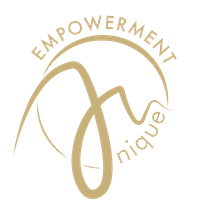
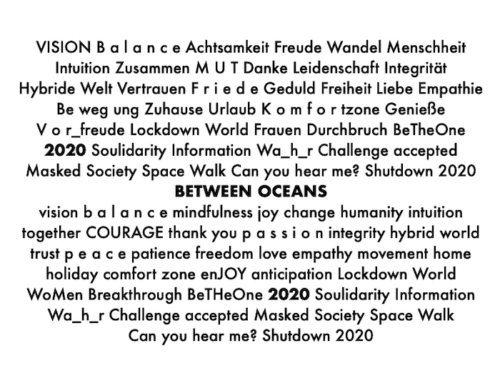
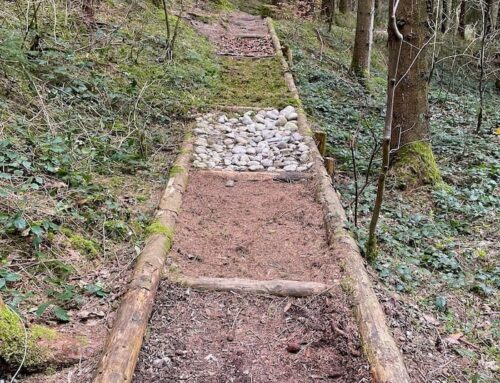
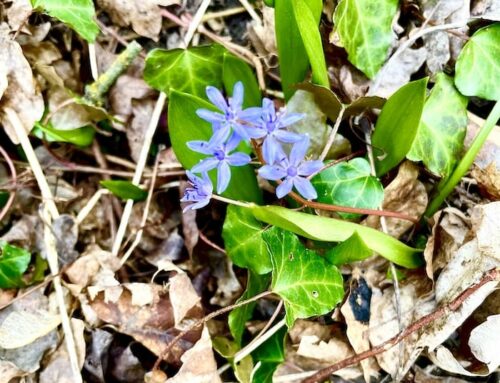
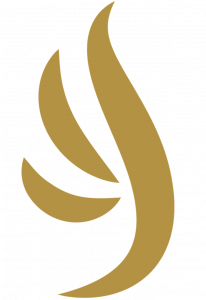

Leave A Comment